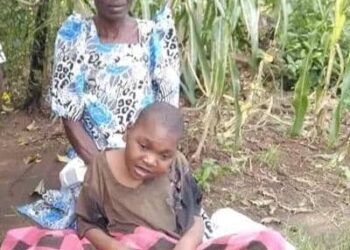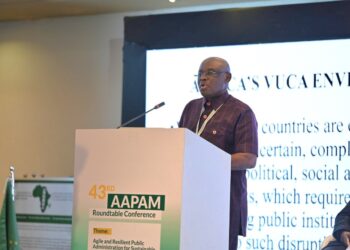Officials and family members are arguing over the arrangements for the burial of Robert Mugabe, the former Zimbabwean president who died in Singapore last week aged 95.
High-ranking members of the ruling Zanu-PF party are understood to have told Mugabe’s close family that his remains should be interred at a hilltop monument outside Harare, the capital, following a ceremony at the nearby national stadium, where dozens of prominent African leaders would be present.
However friends and allies of Mugabe’s second wife, Grace, have said that the late dictator made it clear he would prefer to be buried at his home town of Zvimba, about 60 miles from Harare, with only close relatives in attendance.
They said that Mugabe, who was ousted in a military takeover in November 2017, did not want his death exploited for political gain by his successors.
Mugabe’s remains have yet to be repatriated from Singapore, where he died in a private clinic. Many of his close family members are there, including his widow, along with a team of senior officials.
Last Friday evening, Emmerson Mnangagwa, president of Zimbabwe, declared Mugabe a “national hero” and ordered days of mourning before the burial. He did not give any details of funeral arrangements, but his choice of words suggested he wanted to see Mugabe buried in the National Heroes Acre, a monument to the heroes of the war that overturned the white supremacist regime in the former British colony.
Designed by Zimbabwean and North Korean architects, the plot has a commanding view of Harare and features a huge bronze statue of three guerrilla fighters and an eternal flame on a 40-metre tower.
Though much of Mugabe’s 37 years in power was marked by violence, economic mismanagement and corruption, the former guerrilla fighter is still revered as a liberation leader. Many in Zimbabwe see him as a national hero, remembering his role in the war against white rule.
Flags flew at half-mast yesterday, but there were no public activities to mark the death of a man whose legacy includes a shattered economy, pariah status on the international stage and a repressive political system dominated by the ruling party.
The state-run Herald newspaper, which vilified Mugabe when he was forced to resign and when he subsequently voiced support for the opposition, carried glowing tributes.
In a “commemorative edition” the newspaper, which often acts as a mouthpiece of the government, praised Mugabe for “his uncompromising stance when it came to the rights of Africans”.
A major ceremony and burial at the National Heroes Acre would allow the new rulers of Zimbabwe to showcase their respect for the man they ousted after nearly 40 years in power.
“It would be very awkward for Mnangagwa and others if the funeral is in Zvimba and a family affair … They have always justified their actions as targeting those around [Mugabe], not him, and made a point of treating him well. This is the last act and they need to get it right,” said Blessing-Miles Tendi, an associate professor of African politics at Oxford University and author.
Officials said they were surprised at the apparent bitterness that had caused the former dictator to shun a state funeral. A senior party official told the Observer: “The family is being engaged intensely. The funeral is state funded, all expenses paid to Singapore and back, so that should aid the process.
“There have been discussions before on this matter … It has been going on for months now. Before such news gets to the public, a long process of engagement takes place.
“The five family members who went to Singapore have yet to come back, and those who are here are also engaging in discussions among themselves.”
Mugabe’s relatives are themselves also divided over the location and nature of the funeral. The late president’s nephew, Leo Mugabe, said a decision had yet to be taken but denied that his uncle had given explicit instructions about his final resting place.
“We are just waiting for the repatriation of the body before the full programme is known. We also had never discussed with my uncle before he died where he wanted to be buried so it’s still unclear,” he said.
A spokesman for Zanu-PF, Simon Khaya Moyo, said a Heroes Acre burial was inevitable for Mugabe unless his family decided otherwise.
“The body is not yet here so we cannot be certain on the burial arrangements,” Moyo said. “The family is already discussing among themselves. He was declared a national hero and ordinarily he should be buried at the National Heroes Acre but it’s up to the family and up to what he wanted himself, which we will only know when the body arrives.”
Mugabe was the most prominent surviving member of the generation who fought to free their countries from European colonial rule in Africa.
“The death of Mugabe signals that the era of the 1960s liberation movement leadership is drawing to a close,” said Piers Pigou, an expert on Zimbabwe with the International Crisis Group.
Millions of Zimbabweans now face malnutrition, soaring inflation, up to 80% unemployment and a crumbling infrastructure. Medicines are in short supply and power cuts are common.
“End of an era as Mugabe dies, leaves Zim poor, divided,” read the front-page headline of a privately owned newspaper in Zimbabwe, the Daily News.
Tendai Biti, a former finance minister and opposition politician who was tortured by Mugabe’s henchmen, said the dictator was a product of an era of struggle. “He was a victim of the system he created. The revolution ate its own children and he was the first-born child of that revolution,” said Biti, who is an MP and vice-president of the Movement for Democratic Change.
Do you have a story in your community or an opinion to share with us: Email us at editorial@watchdoguganda.com











